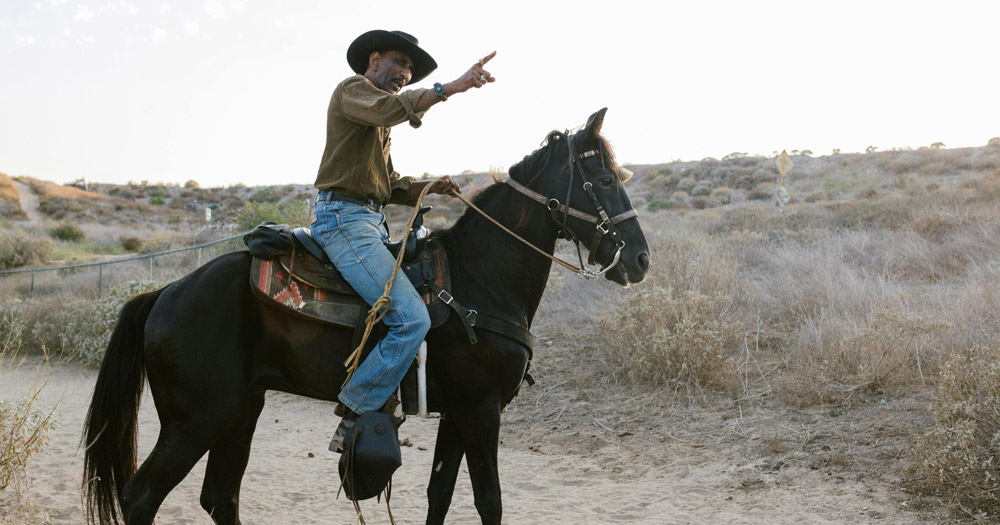The image of a hypermasculine white straight man is still what comes to mind for most when picturing a cowboy. However, this portrayal may be one of the longest-standing myths, perpetuated by American efforts to impose a singular national identity through the cowboy archetype.
Queerness in the country world is nothing new. Rodeos in the American West have long offered space for LGBTQ+ folks and diversity. A culture of sexual ambiguity was commonly accepted due to many different aspects that conformed to cowboys’s situations.
For instance, as opposed to the idea of cowboys being ‘lone rangers’, they actually needed to rely heavily on their partners in order to survive in many hostile environments. There’s no wonder why, in many cases, homoerotic friendships developed between them, deepening their connections which sometimes evolved into physical or romantic intimacy.
In this context, homosociality was integral to cowboy culture, allowing men to connect and fulfil their basic human desire for affection. From a broader perspective, similar dynamics existed among large male communities isolated from women, such as miners and sailors, where engaging in male-male sexual relationships was normalised.
In 1985, the International Gay Rodeo Association (IGRA) was born and expanded across the US over time. Originally created to organise LGBTQ+ rodeos, the IGRA grew into a movement that not only provided a platform for queer cowboys but also became an advocate for LGBTQ+ rights, fundraising to confront conservative backlash. The association also played a crucial role in supporting those affected by AIDS.
In contrast with conventional rodeos, these queer alternatives featured an openness to questioning and discussing norms surrounding gender and sexuality, providing a safe space for LGBTQ+ people to open up about societal taboos.
There are many books and articles that examine the queer sexuality of American cowboys and their cultural significance throughout history. One of which is Elyssa Ford and Rebecca Scofield’s co-authored book Slapping Leather: Queer Cowfolx at the Gay Rodeo, which outlines the development of IGRA, the obstacles queer cowboys navigated and how they resisted Western-imposed conventions from the 1960s until the 2010s. The book also examines gay rodeo leaders’ testimonies, illustrating the writers’ arguments with the help of archive materials from the Autry Museum of the American West.
Slapping Leather also debunks the white masculine cowboy myth and brings visibility back to Indigenous and Black people as well as women’s contribution to queer rodeos.
Elsewhere, in pop culture, music such as Beyoncé’s Cowboy Carter album or Chappell Roan’s song ‘The Giver’ have brought cowboys back into the mainstream, but with a twist. Additionally, movies and shows like Dashing in December or Brokeback Mountain also provide another cultural perspective of the cowboys’ universe—one that allows for a broader understanding of American Western history.
While the number of queer rodeos has steadily decreased, their essence cannot die. Rethinking the American cowboy figure paves the way for rejecting so many other common myths regarding normative sexuality and invites us to embrace diversity and queerness in different areas.
© 2025 GCN (Gay Community News). All rights reserved.
Support GCN
GCN is a free, vital resource for Ireland’s LGBTQ+ community since 1988.
GCN is a trading name of National LGBT Federation CLG, a registered charity - Charity Number: 20034580.
GCN relies on the generous support of the community and allies to sustain the crucial work that we do. Producing GCN is costly, and, in an industry which has been hugely impacted by rising costs, we need your support to help sustain and grow this vital resource.
Supporting GCN for as little as €1.99 per month will help us continue our work as Ireland’s free, independent LGBTQ+ media.
